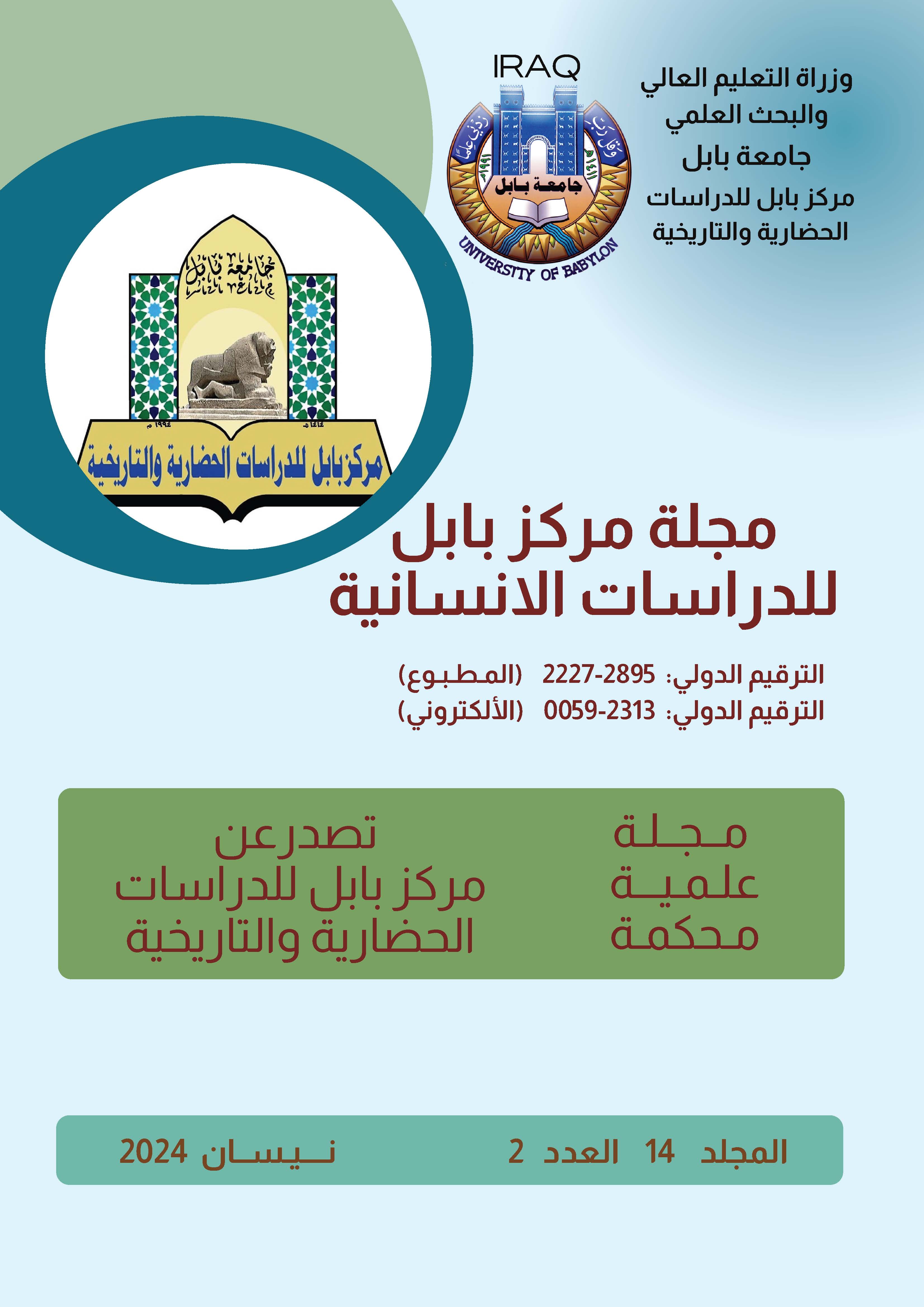الثقافة الشعبية وتشكلاتها في النص المسرحي العراقي
##semicolon##
الثقافة الشعبية، النسق، الايديولوجيا، الهيمنةپوختە
تمثل (الثقافة الشعبية) رافداً مهماً من روافد المعرفة الإنسانية , فهي بلا شك عنصر حاضر في جميع الخطابات التي ينتجها المجتمع على مختلف أشكالها وتنوعاتها , ولكنها حضرت بشكل أكبر وأوسع داخل أروقة الفضاءات والأوساط النقدية بوصفها منطقة تجاذبات و تداخلات وصراعات نقدية وفكرية , خصوصا عندما يدور الحديث عنها بملاحظة علاقاتها بحقول مختلفة من مثل : الثقافة , والسياسة , والهيمنة , والايديولوجيا , والنخبة , والعامة , والأدب الرسمي الرفيع (أدب النخبة) . لقد جاء هذا البحث ليدرس التشكلات النسقية لهذا النوع الواسع والممتد والعريق من الثقافة في النص المسرحي العراقي , بوصف الثقافة الشعبية مادة ثرة وغنية كان لها حضورها المحوري واللافت في نصوص كتابنا المسرحيين العراقيين , وقد ضم البحث أربعة فصول ، شمل الفصل الأول (الإطار المنهجي) مبتدءاً بمشكلة البحث التي تمحورت حول التساؤل عن ماهية التشكلات النسقية لـ(الثقافة الشعبية) في النص المسرحي العراقي . ومعرّجاً على أهمية البحث التي سلطت الضوء على مفهوم (الثقافة الشعبية) والجدل حول مفهومها . كما يتضح – في هذا الفصل – هدف البحث الذي تلخص في محاولة الكشف عن تشكلات (الثقافة الشعبية) النسقية في النص المسرحي العراقي , وتم تحديد كل من : الحد الزماني والحد المكاني والحد الموضوعي خلال هذا الفصل أيضا . وقد عرف الباحث في الفصل الأول كذلك مصطلح (الثقافة الشعبية) ومصطلح (التشكل) تعريفاً إجرائيا بعد ان استعرض جملة من التعريفات لكل واحد منهما .أما الفصل الثاني وهو (الإطار النظري) فقد اشتمل على مبحثين , بالإضافة إلى ذكر المؤشرات التي أسفر عنها الإطار النظري . كان المبحث الأول مخصصاً للحديث عن ـ(الثقافة الشعبية) من جهة (المفهوم) منها و (الجدل) القائم والمستمر حولها , أما المبحث الثاني فقد تناول الباحث خلاله ثقافة النص المسرحي الشعبية بشكل عام , وخصص الفصل الثالث لإجراءات البحث , إذ تم فيه تحديد عينة البحث، التي تمثلت بنص مسرحية (رسالة الطير) لـ(قاسم محمد) وقد تم اختيارها بالطريقة القصدية، واتخذها الباحث أنموذجاً في التحليل، واعتمد الباحث المنهج (الوصفي) في تحليل العينة تبعا لما تمليه عليه طبيعة البحث الحالي. وخلص البحث خلال الفصل الرابع الى درج نتائج تحليل العينة والتي كان منها ان هناك ثمة تنوع قد تمت ملاحظته في انساق (الثقافة الشعبية) وتشكلاتها ومعانيها في النص المسرحي العراقي تراوح ما بين النسق الظاهر والنسق المضمر , وكذلك ظهر من خلال التحليل أن شخوص المسرحية كانت قد تلوّنت بنوعين من الثقافة يبدو أنهما متضادّين , هما: ثقافة الانتماء وثقافة الإحساس بالاغتراب.كما حوى هذا الفصل أيضا على الاستنتاجات التي كان من أهمها : أنه على الرغم من التضاد المحض الذي رافق طرح الثنائيات النسقية في النص المسرحي العراقي , إلا أن (الثقافة الشعبية) استطاعت أن تهدم الهوة والتمايز ما بين الثنائيات المتضادة تلك , في إطار محاولتها لتحقيق التقارب والتساوي واللامركزية. ولم يغفل الباحث في نهاية بحثه الحالي مسألة تقديم قائمة بمصادر البحث وهوامشه.سەرچاوەکان
##submission.downloads##
بڵاو کرایەوە
2024-04-30
ژمارە
بەش
Articles







